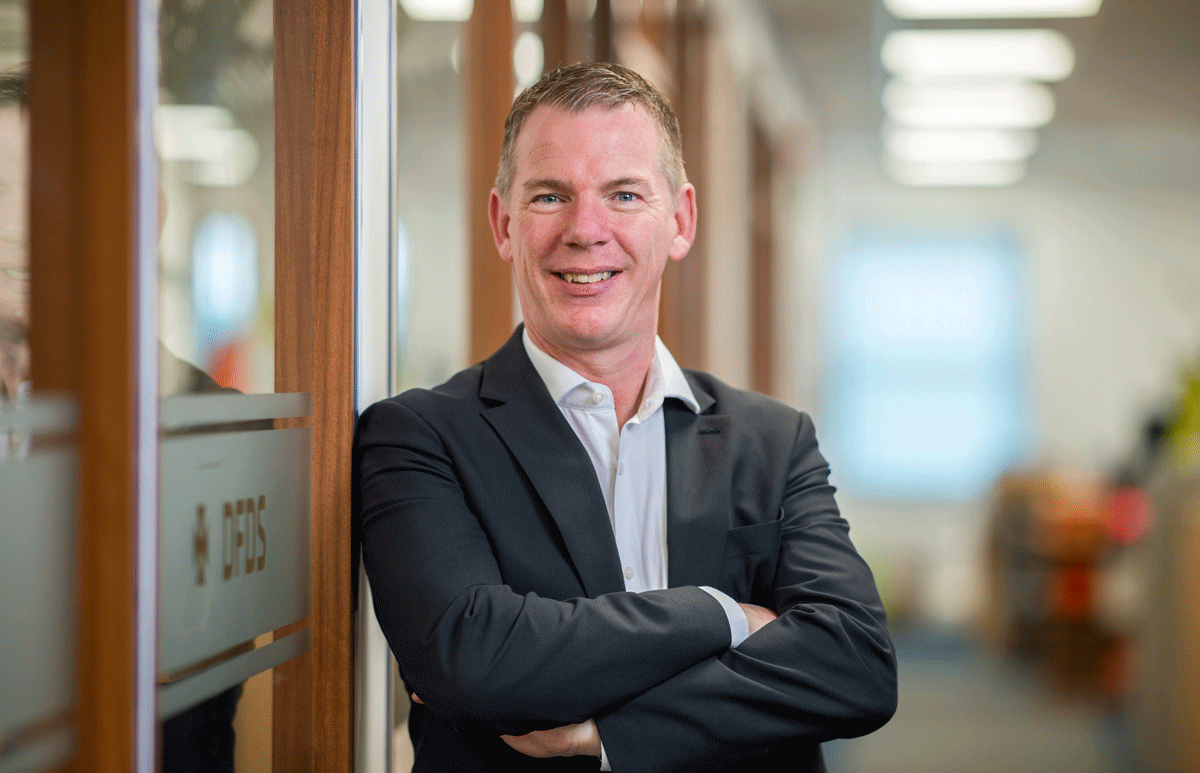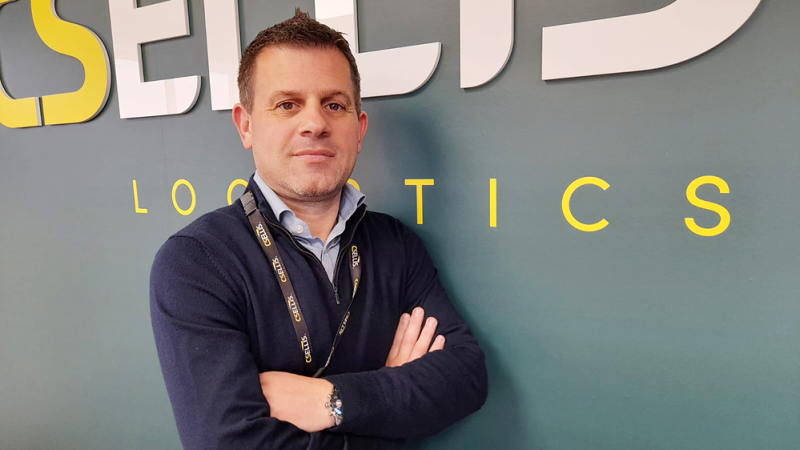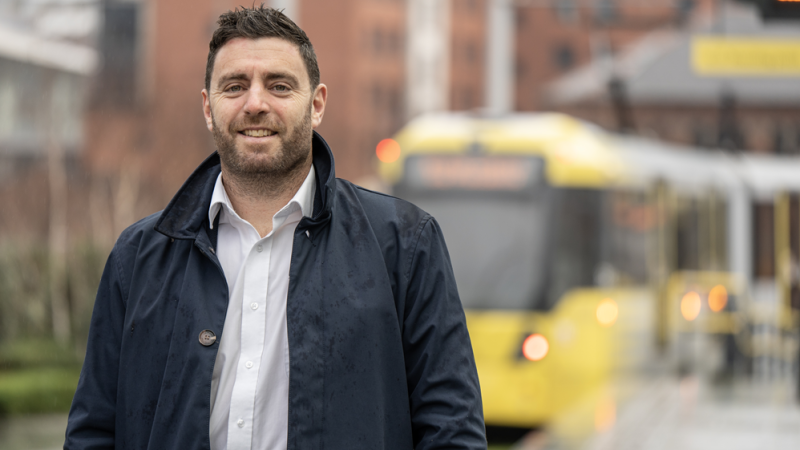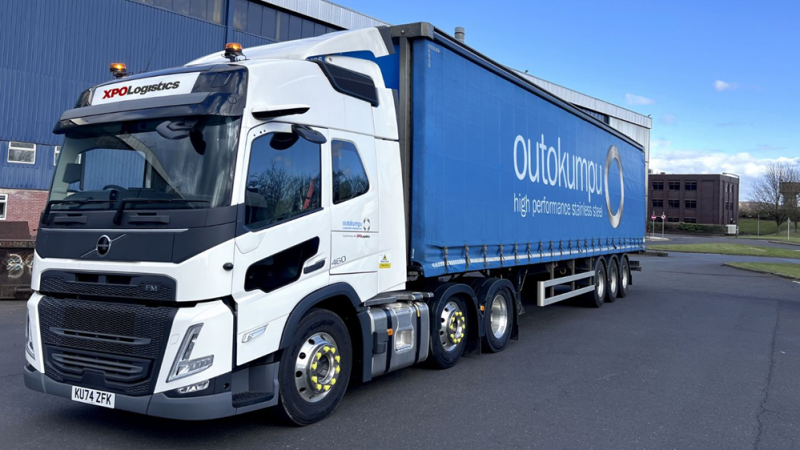DFDS has been operating for 157 years from its operations base in Copenhagen. What started as an alliance of Danish steamships has grown into a company with 14,500 employees, working across 21 countries, offering a myriad of ferry and logistics solutions. That journey is set to continue with the new strategy DFDS launched last year – ‘Moving Together Towards 2030’.
“This strategy gives us the framework to ensure everything we do aligns with our five strategic pillars,” says Andrew Byrne, DFDS Seaways Managing Director.
Those pillars are A) Protect & Grow Profits B) Standardise to simplify C) Digitise to transform D) Moving to Green, and E) Being a great place to work.
“Because of the scale and breadth of services that we offer, customers receive a far more complete value offering,” Byrne says. “Within DFDS we offer ferries, trains, and trucks, warehouses and bespoke solutions and custom services.”
DFDS Seaways has a complex and comprehensive network across 21 countries, with 500 weekly ferry departures, featuring reliable, resilient, and frequent services that remove the headache of relying on a number of different partners. But it is not just about the range of services DFDS Seaways offers, but the way it offers them.
“A priorty for us is our commitment to health, safety and the environment, and we were recognised for this in the 2023 Chartered Institure of Logistics and Transport (CILT) Awards for Excellence” says Byrne. “Our work in this area is woven into the fabric of what we do. It is not an add-on. Health, safety, and security, looking after our people and our customers is at the forefront of everything we do.”
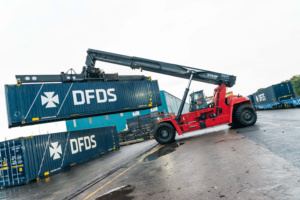 In the UK, DFDS Seaways has led a cultural change campaign to improve safety through personal responsibility, placing health and safety personnel within the operational field teams and implementing telematic systems across the firm’s terminal fleet machinery.
In the UK, DFDS Seaways has led a cultural change campaign to improve safety through personal responsibility, placing health and safety personnel within the operational field teams and implementing telematic systems across the firm’s terminal fleet machinery.
“This will become the standard for all DFDS terminals across the network,” Byrne explains. “Each one of our operational team members has undertaken a cultural safety learning programme. This is building on our inaugural global health and safety conference, which we hosted on The Humber, with colleagues from eight countries attending and sharing best practice and scaling what we do.”
Alongside the CILT Award for Excellence, DFDS Seaways’ achievements were also recognised when the company was named Risk Team of the Year 2022 by the International Institute of Risk Safety Management.
New Challenges
Byrne has been in his role for six years, and nobody can deny that it has been an eventful time.
“We have had to negotiate and navigate Brexit, Covid and the cost-of-living crisis, as well as the transition from fossil to future fuels,” Byrne tells us.
“Despite DFDS’s size, we are still empowered to make decisions locally to help our customers,” Byrne explains. “Brexit has been the biggest challenge in a generation in terms of how we run our terminal. DFDS Seaways has been working with the government and industry to help shape these processes.”
Spreading the Knowledge
DFDS Seaways handles a unit through its gates every 64 seconds, 363 days a year. It is a process that has to run like clockwork, and so DFDS has launched new departments for customs services and border operations at its Immingham site.
“We retrained our terminal staff in our new digital systems, and included our customers in that process,” Byrne points out. “Because of this investment in planning and resources we had no significant problems, and that does not happen by accident.”
Most companies will say that their people are their biggest asset, and DFDS is no exception, but the firm believes it is making itself a leader in terms of how it treats its people and evolves to meet social changes.
“We strive to give our people a flexible work-life balance,” says Byrne. “We want the best talent in our business. We want a blend of operational experience and being able to attract younger employees with different skill sets and knowledge of emerging technologies.”
As Byrne has told us, one of DFDS’s core pillars is the move towards becoming a digitalised workplace. The firm is working with local schools, colleges, and universities, encouraging students in computer science to think about a potential career in the logistics arena. But recruiting new talent is only the beginning.
“We treat our people as family. We hold social events such as summer parties for our colleagues and their families,” Byrne says. “At Christmas we booked all the seats at the pantomime at Grimsby Auditorium for our staff and their families. That might not sound earthshattering, but it is our people’s commitment to DFDS that takes them away from their families, so this is our way of thanking them and creating a community identity.”
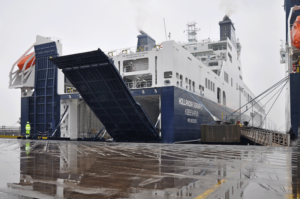 DFDS is also a supporter and founder patron of the Horizon Youth Zone, a facility which will provide opportunities and support for thousands of young people living in Grimsby.
DFDS is also a supporter and founder patron of the Horizon Youth Zone, a facility which will provide opportunities and support for thousands of young people living in Grimsby.
It is one of the ways that DFDS Seaways is investing in the future – but only one of the ways.
“The biggest change we are going to see is our transition to a greener future in terms of how we operate,” Byrne tells us. “We have bold targets globally, and we are committed to reducing CO2 from our ferries by 45% and from our warehousing and trucks by 75% by 2030. By 2050 we will be carbon neutral.”
To achieve that DFDS will need to deploy technologies that do not yet exist, and the firm is actively looking into new propulsion technologies for its vessels. DFDS has already committed to electric vessels for Channel crossings and is also looking at longer-distance voyages where methanol or ammonia-fuelled solutions could be an option. Ocean-going vehicles are only a part of the solution, however.
“We are looking at our terminals, and our offices, and one of the big challenges is how to electrify our terminal machinery without impacting operations or incurring such additional costs that it becomes unviable,” Byrne says. “The whole industry is wrestling with these challenges, but we have been bold and brave with these decisions in the past and that won’t change going forward.”
